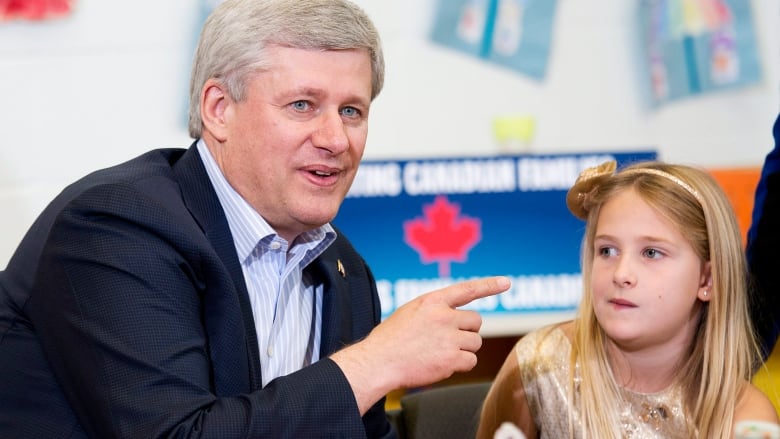UCCB cheques won't stimulate economy much, CIBC says
Economic impact of Universal Child Care Benefit cheques unlikely to be large, Avery Shenfeld suggests

Canadian families may have big plans for the sudden influx of backdated Universal Child Care Benefit cheques that Ottawa mailed out this week, but there's little evidence that the economy as a whole is going to benefit from them,one of Canada's biggest banks said Friday.
In a commentary Friday, CIBC's chief economist Avery Shenfeldattempted to gauge the impact of the thousands of cheques and direct deposit that Canadian parentsreceived this week, worth $160 per month for every child under age six, and $60 per month for every child between the ages of 6 and 17, backdated to January.
The pre-election goodie bagmeans a cash windfall for parents at least a temporary onethat lasts only until tax time. Based on Shenfeld's crunching of the numbers, however, the impact on Canada's economy might be minimal.
"It all comes down to how short-sighted households are about their finances," Shenfeld said. That's economist-speak for saying it depends what Canadians do with their sudden cash infusions.
Front-loaded
"If Canadians spend all of these cheques on 100 per centmade-in-Canada goods and services, it would add 0.8 per centto GDP," Shenfeld said. "But since we annualize growth at quarterly rates, that would boost the annualized GDP growth rate by 3.2 per cent," he added."Impressive," he said.
If Canadians thenkeep spending the same way in the fourth quarter, the impact would be a bit smaller because the cheques would be smaller, too. "Unlike [this time], it's not getting six months of benefit payments all at once, but only the regular monthly allotments," Shenfeldexplained.
By next spring, theremight actually be ahit to GDP, because as critics have noted, the UCCB money is taxable, which means Canadians who got chequesnowwill have to pay taxes on that money later.
"That sounds like a roller coaster ride for growth ahead," Shenfeld said.
If, however, Canadian families take a longer term view with the money, the impact will be even more negligible, he calculates.
All in, the UCCB cheques will cost Ottawa about $5 billion between now and next spring, when the tax year ends, Shenfeld says. If absolutely all of that money gets spent in Canada (and therefore stays in the economy), it works out to a GDP bump of 0.3 per cent over the full period. "Add in the hit from tax hikes at the provincial level (largely an Alberta story this year), and we're down to 0.2 per cent," Shenfeld notes.
The exercise isn't merely a theoretical one, either, as there are some recent examples to look to of when governments handed out similar volumes of cheques in the hopes that citizens would go out and spend money.
Bush's stimulus cheques
In the spring of 2008, U.S. President George W. Bush mailed out millions of cheques to Americans in the hopes that they would go out and spend money in the moribund U.S. economy.
It was a significant amount of money Uncle Sam mailed cheques to 130 million American tax-filers, some worth up to $1,600 USfor a family of four.
The total spend, adding up to $107 billion, was doled out under the pretense of being arebate cheque for gas prices that had swung suddenly high. But the cynical view wasthat the Republican White House wastrying to kickstart the economy headed into an election.
Except it didn't work. Data from the time show that on the whole, Americans took that money and added it to their meagre savings.
"There was just too much bad news afoot for Americans to go on a full-blown shopping spree," Shenfeld said, before adding hopefully that"in Canada, other than in the oil-producing provinces, households might be a bit more liberal with their new money."
Still, add it all up, and the bank isn't expecting a huge lift to the economy from the UCCB cheques.
"It will help, no doubt, but for sustained growth, we'll need more than just a shiny cheque to an already indebted household sector," Shenfeld said.












_(720p).jpg)


 OFFICIAL HD MUSIC VIDEO.jpg)
.jpg)



























































































